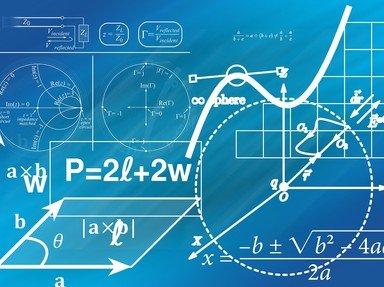Quiz Answer Key and Fun Facts
1. What is the term or name given to describe whether a number is odd or even?
2. An odd number is the number in the form of 2n + 1. On the other hand, an even number is represented in the form of 2n. What is n?
3. An integer is odd if it ends with 1, 3, 5, 7 or 9. On the other hand, it is an even integer if it ends with 0, 2, 4, 6 or 8. But how about the numbers that are expressed in the binary system (only number 0 and 1 are used)? When written in the binary system, an odd number always ends with ___.
4. Choose the WRONG statement.
5. We define a factorial operation n! as n(n-1)(n-2)...(2)(1). All factorial operations will result in even numbers (for example, 4! = 4 x 3 x 2 x 1 = 24, where 24 is an even number) with 2 exceptions, namely ______.
6. Which of the following arithmetic operations will result in an odd number?
7. A function f is called an even function if f(x) = f(-x), that is, the function is symmetric with respect to the y-axis. Which of the following is an even function?
8. An odd function is the function in the form of -f(x) = f(-x). This type of function is symmetric with respect to the origin. In other words, the graph will look exactly the same if it rotates ___ degrees about the origin.
9. In Roman numerals, which of the following is an odd number?
10. Let A be the sum of all the odd numbers from 1 to 100 and B be the sum of all the even numbers from 1 to 100. Choose the CORRECT statement.
Source: Author
Matthew_07
This quiz was reviewed by FunTrivia editor
crisw before going online.
Any errors found in FunTrivia content are routinely corrected through our feedback system.

